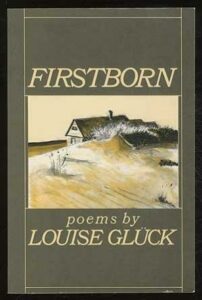There is a LOT going on in this book, and some of it is really good and some of it is really bad, but I definitely looked up the age of the author after this and I’m genuinely convinced that in a decade or two, she’s going to come back to this book and wince because there’s so much she gets right but so, so much that she doesn’t understand how to write quite yet. And I’m not saying that 26 year-olds shouldn’t write books: Asha Bromfield clearly has a lot of talent and a lot to say. But after reading this, I genuinely don’t think that she’s finished processing her traumas yet in a way where she’s actually forgiven the people who hurt her given the way she forces our heroine Tilla to forgive, and so the denouements feel more forced and shallow than they might in, say, fifteen years, when she’s finally come good with what happened to her.
(I am not a doctor, I only play one on TV*.)
Hurricane Summer is the story of the summer of 2008 in Jamaica, immediately before, during and after one of the most devastating hurricanes to hit the island. Tilla is 18 years old, and sent away from Canada with her nine year-old sister to spend the summer with her father in her parents’ homeland of Jamaica. Tilla’s parents have a strained marriage, with Tyson floating in and out of his family’s lives, traveling back and forth between countries. As the story begins, Tilla and Mia haven’t seen their dad in over a year, but he’s keen to have them visit and learn about their culture, pooh-poohing their mother’s concerns about the dangers of hurricane season.
It’s culture shock almost immediately as the girls land, as their dad keeps them waiting for almost an hour before picking them up. After love bombing them, he spirits them off to the countryside instead of to his Kingston home, dumping them to stay with their country cousins before hightailing back to the city himself. While their grandparents and boy cousins are happy to have them there, the rest of the family takes a much dimmer view, from their bitter Aunt Herma to menacing Uncle Junior. Cousin Diana, who’s about the same age as Tilla, initially seems to take the “foreigner” under her wing but soon makes it clear that they’re going to be frenemies at best, even before Tilla meets Hessan, the cute guy Diana regards as her own.
When Tilla isn’t foolishly falling in lust with Hessan, she’s exploring the island with her cousin Andre, who introduces her to the best of Jamaica, including one memorable scene in the middle of the hurricane. But it’s also Andre who opens her eyes, however unwittingly, to the colorism and sexism of Jamaican society. As her summer lurches from one disaster to the next, Tilla needs to overcome heartbreak and claim her own identity independent of the men she loves who fail her over and over again.
First of all, I want to scoop Andre out of these pages and put him somewhere safe where he’ll never be hurt again. I want to nurture and protect that sweet shining soul, and I’m only going to imagine the best and most wonderful things for him. He’s one of the loveliest fictional creations I’ve encountered this decade.
I wish I could say the same for anyone else in this book, including poor Tilla. It’s just hard to believe that at the age of 18 she’s never had a best friend, and that she’s still so pressed about a dad who’s been a fucking deadbeat for years. So much of what happens reads like she’s a 13 year-old aged up to make some of the situations more “appropriate” for a YA novel (and more on this in a bit.) It’s also really hard to imagine that anyone this passive would suddenly grow a spine and tell as many people off as she does in the end. I just… there’s been a trend in contemporary literature lately of girls who just do whatever guys say despite their own wishes and despite not owing the guy, usually a virtual stranger, a goddamn thing. Ladies! You are allowed to say no! You are allowed to not put yourself into dangerous positions! You are allowed to not be polite when all your radars are going off!
Because lots of bad shit happens to Tilla when she doesn’t listen to her internal danger sense, stuff that makes me really hate that this book is shelved as YA. Sexual pleasure and assault are both treated in a way that feels more graphic than it needs to be for this genre. This is a grown up book about grown up problems, and it is weird as hell to see it cynically marketed for readers who may not be ready for all that.
It’s also weird to see Tilla just not understand Patois, which anyone who speaks English should be able to pick up easily from context clues. I get not being able to speak it, but needing to ask the meaning of “wha gwan” (what’s going on), “mongrel” (dog) and ffs “shop” (shop!) is just bizarre and makes her seem extremely childlike. Which leads to my (other) main criticism of the book: that Jamaican culture and society is overwhelmingly portrayed as abjectly terrible. Except for Andre and several minor characters, everyone is outright awful. Tilla proclaims that she loves Jamaica and feels it running through her spirit, but you get the feeling that she kinda hates all the people? But radically forgives them, as she says in one of the opening dedications, or something?
In the same way that I rail against the North American concept of niceness, I also rail against the idea that you have to forgive people, especially if they make no attempts at amends. While we owe it to society to be the best people we can possibly be, we do not owe it to individual people to not hold them responsible for their bad actions. If someone hurts you, you are under no obligation to let them think they can keep doing it. Abusers and their enablers will tell you over and over again that YOU need to be the better person, when it’s on THEM to change. Being good does not mean allowing other people to get away with harmful behaviors!
Yet for all that I rail against the cultures that put Tilla through this absolute hell of a summer — and look, I know it’s empowering to think that YOU’RE the hurricane and you get to go home while these people pick up the pieces, but YOU’RE not the rapist or the people who encourage and excuse him while slut-shaming you, and you don’t need to minimize your own pain just to make life easier for other people! You deserve to take up space! You matter! — I cannot deny the power of this story. It is brutally honest and wonderfully observed, and the fact that I’m so overwrought with advice and love for Tilla and women and girls like her speaks to how vividly this book is written. It has its flaws, for sure, but I wish only the best in healing for Ms Bromfield, and hope she takes comfort in knowing that she’s built an incredible monument here to Andre and his friendship and love. She and I may not agree on radical forgiveness (which, btw, is not uniformly applied in this book, as if even she doesn’t really believe in it) but I 100% believe in the power of the radical empathy she puts on display here.
*This is an old joke, a protomeme, if you will, from 1984 (the year, not the book. Sigh. Whippersnappers.)
Hurricane Summer by Asha Bromfield was published yesterday May 4 2021 by Wednesday Books, and is available from all good booksellers, including




